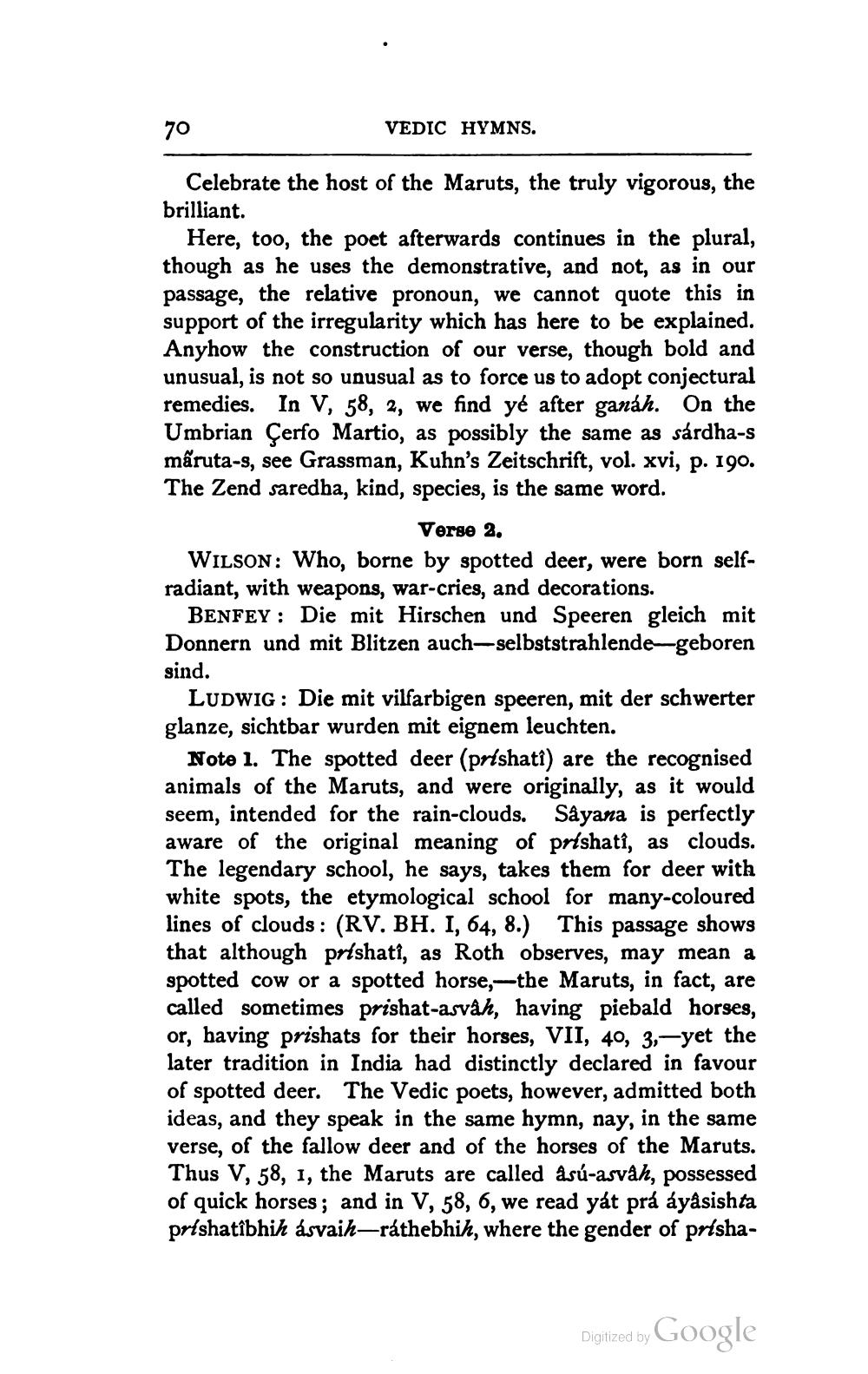________________
70
VEDIC HYMNS.
Celebrate the host of the Maruts, the truly vigorous, the brilliant.
Here, too, the poet afterwards continues in the plural, though as he uses the demonstrative, and not, as in our passage, the relative pronoun, we cannot quote this in support of the irregularity which has here to be explained. Anyhow the construction of our verse, though bold and unusual, is not so unusual as to force us to adopt conjectural remedies. In V, 58, 2, we find yé after ganáh. On the Umbrian Çerfo Martio, as possibly the same as sárdha-s maruta-s, see Grassman, Kuhn's Zeitschrift, vol. xvi, p. 190. The Zend saredha, kind, species, is the same word.
Verse 2.
WILSON: Who, borne by spotted deer, were born selfradiant, with weapons, war-cries, and decorations.
BENFEY: Die mit Hirschen und Speeren gleich mit Donnern und mit Blitzen auch-selbststrahlende-geboren sind.
LUDWIG: Die mit vilfarbigen speeren, mit der schwerter glanze, sichtbar wurden mit eignem leuchten.
Note 1. The spotted deer (príshatî) are the recognised animals of the Maruts, and were originally, as it would seem, intended for the rain-clouds. Sâyana is perfectly aware of the original meaning of príshati, as clouds. The legendary school, he says, takes them for deer with white spots, the etymological school for many-coloured lines of clouds: (RV. BH. I, 64, 8.) This passage shows that although príshati, as Roth observes, may mean a spotted cow or a spotted horse,-the Maruts, in fact, are called sometimes prishat-asvåh, having piebald horses, or, having prishats for their horses, VII, 40, 3,-yet the later tradition in India had distinctly declared in favour of spotted deer. The Vedic poets, however, admitted both ideas, and they speak in the same hymn, nay, in the same verse, of the fallow deer and of the horses of the Maruts. Thus V, 58, 1, the Maruts are called âsú-asvâh, possessed of quick horses; and in V, 58, 6, we read yát prá áyâsishta príshatîbhik ásvaih-ráthebhih, where the gender of prísha
Digitized by Google




